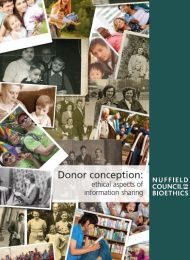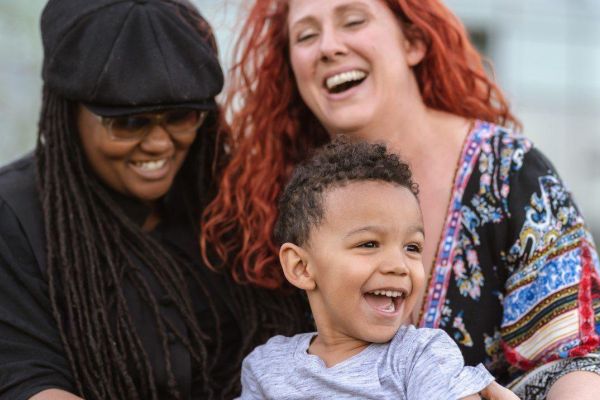Donor conception: ethical aspects of information sharing
Report
Published 17/04/2013

Families created through donor conception
The donation of eggs or sperm (‘gametes’) or embryos makes it possible for many people, who would otherwise not have been able to have children, to create families of their own.
People may consider using donor gametes or embryos to conceive because they have fertility problems, or because they want to avoid passing on a serious genetic condition to their child. Donor gametes or embryos may also be used to help create ‘nontraditional’ families, such as those created by same-sex couples or single people.
Since the introduction of regulation in 1991, over 35,000 donor-conceived children have been born in the UK as a result of their parents having treatment in a licensed clinic. These figures do not include those donor-conceived people born as a result of unlicensed sperm donation (sperm donation arranged privately without involving a clinic), or of treatment in overseas clinics.
Some donors (‘known donors’) choose to donate in order to help a friend or relative have a child. Others (‘unknown donors’) decide to donate to help someone they don’t know. Sometimes donors may themselves be having fertility treatment – for example in ‘egg-sharing’ arrangements, women donate some of their own eggs in return for free or reduced-cost treatment.
Families come in all shapes and sizes, and include single parent and adoptive families, as well as families with step-children. While ‘blood’ relationships are seen as important in families, so too are relationships created through love, care and nurture.

Share